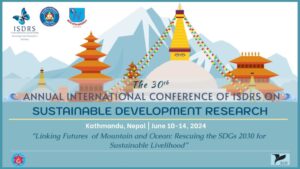Trondheim, Norway - 18-20 June 2014 | Conference website
Resilience – The New Research Frontier
The proceedings can be found here.
[three_quarters]
Key reflections
The 20th Annual ISDRS conference at NTNU in 2014 had the topic: Resilience –The New Research Frontier. It has been dedicated to research contributing to solving the human efforts for securing well-being and a decent life for all while maintaining the planets ecological capacity for future generations. The main aim of the conference was to provide an interdisciplinary forum for discussion on the complex issue of sustainability and its relations to resilience in nature and society, welcoming both empirical and theoretical contributions considering developed, developing and transition perspectives.
The debate at ISDRC20 highlighted that in general consumption has become more sustainable, but that structural support in and from society is still weak and innovation relates to discourse rather than action. Several presentations focused on new methodologies and initiatives for the development of resilient societies and cultures, and, by the same time, were criticising the non-appropriate context. Here, the gap between international policies and local needs and skills was discussed and lacking ways of connecting macro and micro levels in a sensible manner were mentioned. Policies seem just occasionally harmonizing with local practices.
Another important theme in ISDRC20 was stakeholder involvement and interaction between different actors to make social structures more resilient, for example through bottom up approaches and inclusion of marginalized groups. Further, the importance of design and architecture was highlighted to be appropriate to relevant stakeholders and their values and needs.
In summary, participation, and methods and strategies to allow societal collaboration on sustainability issues seems to be important future topics for the international sustainable development research conference. Social innovation and sustainability should attune, and research may focus on facilitating this process scientifically and practically.
Other reflections
Report by Bert de Vries
Norway is perhaps the country with the best perspectives to be or become sustainable. It has abundant waterpower (hydro), large oil and gas reserves that are cleverly exploited, lots of land and space, an educated and relatively small population. Naturally, in line with evolutionary niche occupation and development (Adam Smith being a Darwinist avant la lettre), Norway specialized into electric railways, has many expensive electric (and heavily subsidized) Tesla cars driving around, and hosts a large meeting this week on offshore windturbine parks as a complement to the offshore oil and gas business.
The notes below give an impression of some of a few of the presentations at this well-organized conference, with some 200 participants. Obviously, they do not reflect the large diversity in topics and speakers.
Read more here.
[/three_quarters] [quarter]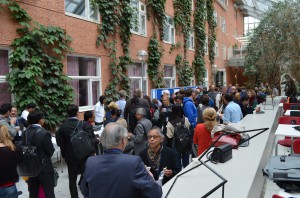
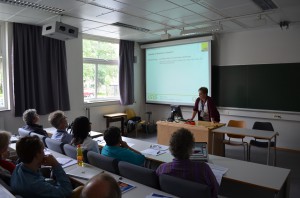
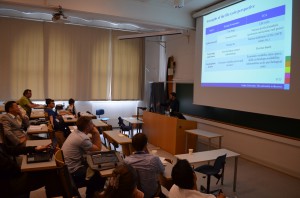
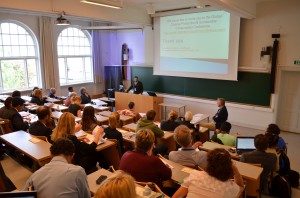
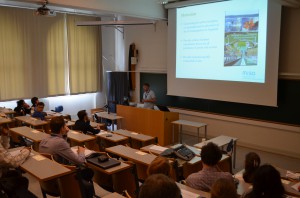
[/quarter]
